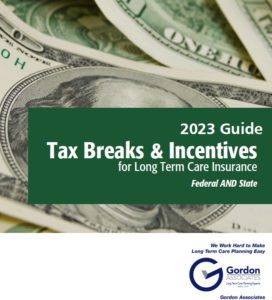A rising number of nursing homes are pursuing the adult children of patients for their parents’ unpaid bills. It’s called filial support litigation, and it’s a growing trend among long term care providers.
Thanks to something called filial responsibility laws, the providers often prevail. More than half of U.S. states have these laws in place, which hold children financially responsible for their parents’ expenses.
For example, a few years ago, Pennsylvania nursing home sued one grown son for his mother’s $93,000 bill and won, citing Pennsylvania’s filial responsibility statute.
Chances are, this litigation trend won’t merely impact families. Elder law experts predict that adult children facing lawsuits may in turn attempt to hold their parents’ advisors and attorneys liable for breaching due diligence.
The takeaway: not only do people need a long term care plan for themselves, they might want to make sure their parents have one in place, too. In addition, professionals should make sure they are completing their due diligence when advising their clients on this matter.
For a discussion on the topic, listen to Brian Gordon’s interview with Kevin Price in March 2021.
Does your state have a filial responsibility law? For a state-by-state summary of statutes compiled by Penn State University’s Dickinson School of Law, contact us.

 To help determine if long-term care (LTC) insurance is right for you, we are offering a FREE informational guide. This is a comprehensive booklet that will answer many of your questions about LTC and assist you with your health care planning.
To help determine if long-term care (LTC) insurance is right for you, we are offering a FREE informational guide. This is a comprehensive booklet that will answer many of your questions about LTC and assist you with your health care planning. To help determine if long-term care (LTC) insurance is right for you, we are offering a FREE informational guide. This is a comprehensive booklet that will answer many of your questions about tax breaks and incentives for LTCI for federal and state taxes.
To help determine if long-term care (LTC) insurance is right for you, we are offering a FREE informational guide. This is a comprehensive booklet that will answer many of your questions about tax breaks and incentives for LTCI for federal and state taxes.